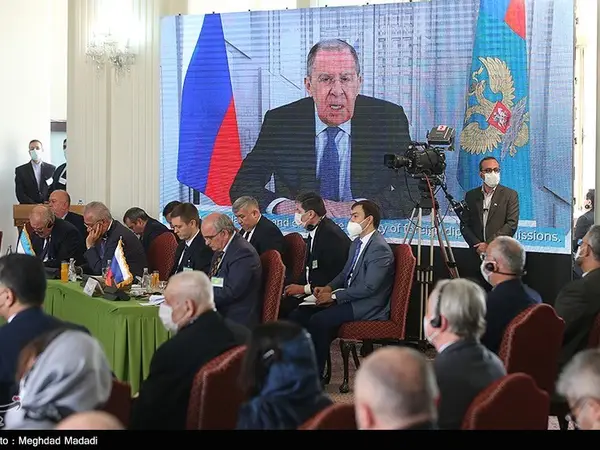A meeting of Afghanistan’s neighboring states in Tehran condemned violent attacks "in all shapes and forms including those against ethnic and religious groups."
The foreign ministers of Iran, Pakistan, Turkmenistan, Uzbekistan, Tajikistan, China, and Russia called Wednesday for an "inclusive and broad-based political structure with the participation of all ethno-political groups," and urged the world, including the United Nations, to provide urgent economic and humanitarian assistance.
The message of the conference in Tehran was clear, Iranian foreign minister Hossein Amir-Abdollahian tweeted Wednesday afternoon: "Peace will only stem from [an] inclusive government [and] respect for [the] will of Afghan people."
In a press conference after the meeting, Amir-Abdollahian said the Taliban were in charge of a caretaker government. Amir-Abdollahian said Afghan assets held by foreign banks should be released before winter sets in, and that humanitarian and economic support should be provided to prevent insurgents exploiting hardships.
Iran’s neighbors have delayed formal recognition of the new authorities but there is growing acceptance internationally of the new reality in Kabul. The European Union is soon to reopen its diplomatic mission, withdrawn to Qatar in August.
Iran has said that one aim of holding the Tehran meeting was to convey the message of "opposition to foreign interference," a sideswipe at the United States, which ended in August its 20-year military presence. The Russian and Chinese foreign ministers participated via video-link, while United Nations Secretary General Antonio Guterres sent a message.
The Taliban were apparently not invited but welcomed the initiative. Opinions in Iran over how to deal with the situation in Afghanistan are mixed, with reformist and some conservative voices opposing recognizing the Taliban without offering a clear alternative.
Russia has suggested it would recognize the Taliban if it met several conditions. Amir- Abdollahian said participants had reached basic agreement on the Taliban joining the next neighbors’ gathering provided representatives of all major Afghan ethnic groups were present.
The meeting came a week after the meeting in the Russian capital of ‘Moscow Format Consultations on Afghanistan,’ which brought together Russia, China, Iran, India, Pakistan, and four central Asia republics. A closing statement – from which Tehran dissented for reasons that remain unclear – assessed the Taliban as de facto rulers of Afghanistan irrespective of formal recognition internationally.
